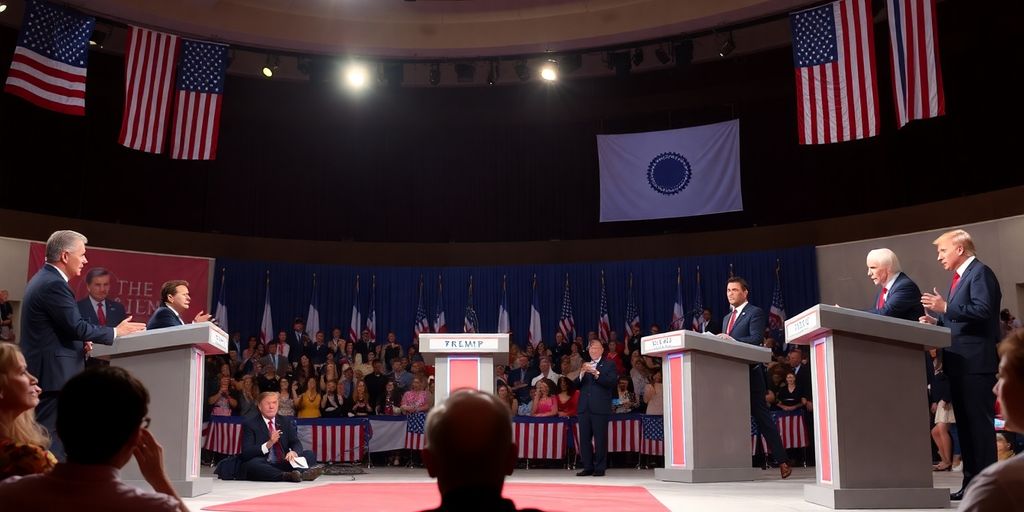Romania is gearing up for a pivotal presidential election, set to take place on May 4 and 18, 2025, following the unprecedented annulment of the previous election due to allegations of foreign interference. The political landscape is charged with tension as far-right candidates vie for power, raising concerns about the future of democracy in the country.
Key Takeaways
- The Romanian Constitutional Court annulled the December election, citing Russian meddling.
- Far-right candidate George Simion is now the frontrunner after the disqualification of Călin Georgescu.
- Nearly 40% of voters remain undecided ahead of the upcoming election.
- Protests erupted in Bucharest against the election cancellation, highlighting public discontent.
Background of the Controversy
In December 2024, the Romanian presidential election was abruptly canceled by the Constitutional Court, which cited evidence of Russian influence favoring Călin Georgescu, a far-right candidate. This decision has sparked widespread protests, with thousands of Romanians expressing their anger over what they perceive as an attack on democracy. The court’s ruling has left a significant portion of the electorate feeling disenfranchised and distrustful of political institutions.
The Rise of George Simion
With Georgescu barred from running again, George Simion, leader of the nationalist Alliance for Uniting Romanians (AUR), has emerged as the new favorite. Simion’s party has gained traction by appealing to voters disillusioned with mainstream politics, capitalizing on economic grievances and nationalistic sentiments. His campaign promises include:
- Stopping potential U.S. troop withdrawals from Romania.
- Increasing defense spending to bolster national security.
- Advocating for traditional family values and opposing LGBTQ rights.
Simion’s rise has raised alarms among pro-democracy activists, who fear that his election could lead Romania further away from European values and closer to authoritarianism.
Public Sentiment and Voter Dynamics
Recent polls indicate that nearly 40% of Romanian voters remain undecided, reflecting a deep divide in public opinion. Many voters are frustrated with the political status quo, leading to a volatile electoral environment. Key factors influencing voter sentiment include:
- Economic hardship: Rising prices and stagnant wages have left many Romanians feeling abandoned by traditional parties.
- Distrust in institutions: The annulment of the election has further eroded public confidence in the political system.
- Influence of social media: Misinformation campaigns on platforms like TikTok have shaped public perceptions and voter behavior.
Protests and Political Tensions
The political climate has been marked by protests against the election’s cancellation, with demonstrators demanding accountability and transparency. Supporters of both Simion and Georgescu have taken to the streets, showcasing the polarized nature of Romanian society. Protest slogans such as "Freedom" and "Thieves" reflect widespread discontent with the current government and the perceived erosion of democratic norms.
Conclusion
As Romania approaches its presidential election, the stakes are higher than ever. The outcome will not only determine the country’s leadership but also its trajectory in terms of democracy, European integration, and national identity. With a significant portion of the electorate still undecided, the coming weeks will be crucial in shaping the future of Romania amidst a backdrop of controversy and unrest.
Sources
- Fear and anger as ‘battle for the soul of Romanian democracy’ looms, BBC.
- Thousands protest cancelled Romanian election ahead of repeat vote, Reuters.
- Nearly 40% of Romanian voters remain undecided ahead of presidential election, Euronews.com.
- Romanian election favourite pledges to stop potential US troop withdrawal, Reuters.
- Despite court rulings, Romania still risks seeing an extremist as president – leading academic |
International IDEA, International IDEA.






